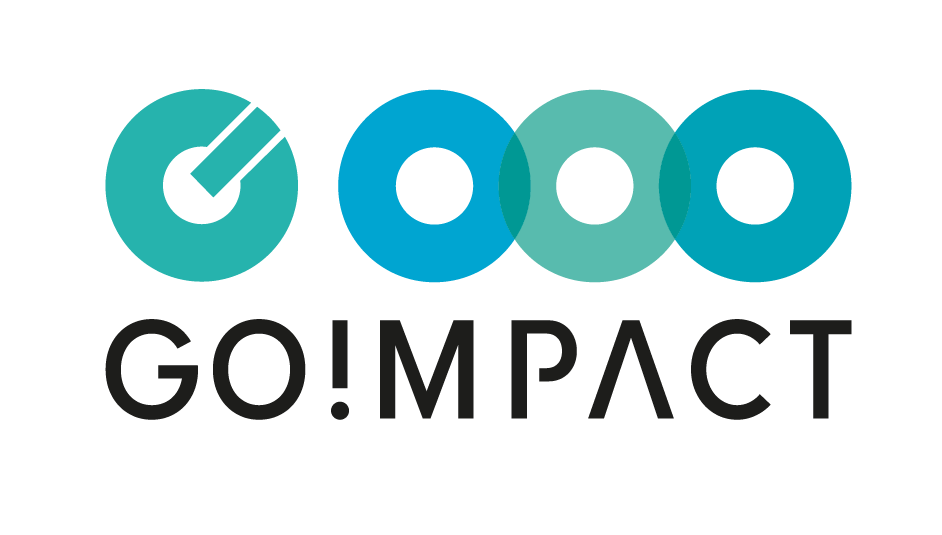From Crisis to Collaboration: Turning 'Too Little Too Late' into a Rallying Call for Green, Fin, and Tech to Unite and Ensure Sustainability
Regional collaboration and alignment and nurturing talent are imperative for the governments of each economy to advance their respective Green finTech ecosystem
Today, GoImpact, an ESG and Sustainability education and EdTech firm, once again partnered with The Chinese University of Hong Kong Business School (“CUHK Business School”) for their second collaboration to release the groundbreaking Green Fintech Report 2023 - titled “The Intersection of Green, Fin, and Tech: A Study across 5 APEC Economies”. This comprehensive study, supported by Ant Group, builds upon the success of last year's report and provides deeper insights into the developmental landscape of Green Fintech across five APEC economies, Hong Kong, Indonesia, Thailand, The Republic of Korea (South Korea), and Singapore. Derived from three elements — environment, finance, and technology — the industry report defines green fintech as financial activities that utilise green technologies that bring better environmental outcomes.
Singapore - a regional hub for Green FinTech, boasts a thriving ecosystem with strong collaborations. However, concerns regarding data integrity and greenwashing remain, underscoring the importance of ongoing vigilance.
Hong Kong - has demonstrated significant progress in terms of government policymaker support and collaboration with corporate sectors. However, Green FinTech startups and SMEs are looking forward to an improvement in funding access and structural support.
South Korea – although the government is involved in developing the Green FinTech ecosystem, propelled by cross-border regulations, corporations are taking the lead in championing the green transition.
Indonesia - with its fertile market, showcases promise for exponential growth in Green FinTech. However, outreach and education programmes are needed to facilitate widespread adoption.
Thailand – while corporate engagement is currently driving the transition to renewable energy, for example, the AgroTech industry adapting to climate challenges, the government is projected to provide more requisite and systemic support.
The Need for Government Regulation in the Growth of Green FinTech
As sustainability takes center stage globally, governments in the 5 APEC economies are actively exploring innovative strategies such as carbon taxes and tax incentives for the GreenTech and Cleantech industries and Carbon Markets. However, the regulatory landscape in Asia faces challenges due to ambiguity, differing regulatory frameworks, and misaligned definitions and metrics.
Separately, SMEs face difficulties accessing and benefiting from green financing due to regulatory complexities and resource limitations, despite their potential for driving sustainable growth. Regulatory clarity is crucial for SMEs development, countering greenwashing, and increasing credibility and investor trust in sustainable finance. The lack of standardisation in the complex Green FinTech landscape across these markets calls for regional collaboration for standardised best practices for alignment of ecosystems.
Both the Private and Public Sectors are Eyeing Green Technologies
Client demand for sustainability, performance, transparency, and accountability is fueling a transformative shift in investments. The private and public sectors are actively exploring sustainable and green technologies, such as carbon capture, usage and storage (CCUS) and ESG risk modelling.
Separately, AI and machine learning solutions are increasingly adopted by organisations, streamlining ESG compliance, carbon management, and risk assessment. For example, leading rating agencies like Sustainalytics and Moody's incorporate AI and machine learning into their analytical frameworks, enabling faster and more accurate analysis of large volumes of data.
Challenges Faced by Green Fintech, Particularly the Critical Shortage of Talent
Apart from the necessity for green finance advancements, the heart of Green FinTech also confronts the challenge of finding talent that can bridge financial, technology, and sustainable knowledge. Corporations already grappling with complexities like scope 3 emissions transparency and Net-Zero commitments recognise the strategic imperative of sustainability education and training.
In locations like Hong Kong, recruiting ESG experts proves challenging, underscoring the need for interdisciplinary talent development to drive sectoral progress. Currently, foreign talent is a temporary solution to bringing valuable experience and knowledge to governments and corporations. Their presence can play a guiding role in the establishment, development, and sustainability of Green FinTech ecosystems, effectively steering economies in the right direction.
To overcome these challenges and strengthen the Green FinTech ecosystem, companies should instill authentic ESG awareness beyond compliance; regulatory bodies must also collaboratively work towards establishing a regional taxonomy, standards, and policies. And finally, governments should encourage public-private partnerships and ensure the comprehensive development of sustainable talent.
Ms. Helene Li, CEO and Co-Founder of GoImpact, said, “It is very clear from the key findings in this second report that cross-sector collaboration and bridging the talent gap effectively will be crucial to advancing the Green Finance agenda. The frequency of extreme weather disasters are strong signals that we need to do more and do it faster, collectively.”
Prof. Kalok Chan, Wei Lun Professor of Finance at CUHK Business School, said, “It is our great pleasure to collaborate with GoImpact once again. This research paper continues the research from last year and focuses on how five APEC jurisdictions tackle the challenges in the green fintech ecosystem and develop decarbonisation pathways that are applicable in each of their socio-economic contexts. As one of the leading business schools in Asia, we will also continue cultivating talents with a socially responsible mindset and equipping them with the skills and knowledge to contribute for the betterment of the Green Fintech industry.”
Ms. Jennifer Tan, Executive Vice President, Strategy Development and Government Affairs, Greater Bay Area of Ant Group and Head of 10x1000 Tech for Inclusion, said, " As a company with a long-standing commitment to developing green fintech technologies, Ant Group is proud to support this research for the second consecutive year. The exploration of green fintech not only carries academic significance but also furnishes valuable insights into addressing the common global challenges we currently confront. We hope that this independent research can offer constructive insights that will catalyze the global growth of green fintech.”
(Left to right:) Dr. Edwin Mok, Lecturer of the Department of Finance and Director of the Quantitative Finance Programme at CUHK, Ms. Helene Li, CEO and Co-Founder of GoImpact and Ms. Jennifer Tan, EVP, Strategy Development & Government Affairs, GBA of Ant Group present their 2nd joint working paper "The Intersection of Green, Fin, and Tech: A Study across 5 APEC Economies with regional and local media.
About GoImpact
Bridging the great divide between the talk and action, accelerating the Sustainable Development agenda from intention to implementation – GoImpact means impact made easy and actionable.
GoImpact is an ecosystem developed to connect the dots and provide action enablers built around 3 key pillars – GoLearn (education); GoNetwork (structured advocacy); GoInvest (deal flow platform for sustainable investments).
Through our integrated learning platform in partnership with top tier education institutions and accreditation channels, we seek to establish a common baseline of Sustainability learning, made easy, for many.
Website: www.goimpact.today/home
About CUHK Business School
CUHK Business School comprises two schools – Accountancy, and Hotel and Tourism Management – and four departments – Decision Sciences and Managerial Economics, Finance, Management, and Marketing. Established in Hong Kong in 1963, it was the first business school to offer BBA, MBA and Executive MBA programmes in the region. Today, CUHK Business School offers 10 undergraduate programmes and 20 graduate programmes including MBA, EMBA, Master, MSc, MPhil, DBA and Ph.D. The School currently has over 4,600 undergraduate and postgraduate students from over 20 countries/regions.
In the Financial Times Executive MBA Ranking 2022, CUHK EMBA was ranked 24th in the world. In Financial Times Global MBA Ranking 2022, CUHK MBA was ranked 50th. CUHK Business School has the largest number of business alumni (over 40,000) among universities/business schools in Hong Kong – many of whom are key business leaders.
About Ant Group
Ant Group traces its roots back to Alipay, which was established in 2004 to create trust between online sellers and buyers. Over the years, Ant Group has grown to become one of the world's leading open Internet platforms.
Through technological innovation, we support our partners in providing inclusive, convenient digital life and digital financial services to consumers and SMEs. In addition, we have been introducing new technologies and products to support the digital transformation of industries and facilitate collaboration. Working together with global partners, we enable merchants and consumers to make and receive payments and remit around the world.
For more information, please visit our website at www.antgroup.com or follow us on Twitter @AntGroup.
For media inquiries, please contact:
Ms. Natalie Hui / Ms. Jessica Wong (Joint PR)
Tel: +852 9226 5529 /+852 9410 9226
Email: goimpact@jointpr.
Appendix:
The key players of the Green FinTech Ecosystem that aid in and sustain a thriving Green Fintech ecosystem are illustrated.
Figure 2 recognises the existence and impact of existing Green FinTechs, while identifying newer FinTechs that have displayed great potential to impact the current Green FinTech sector. In the future, these FinTechs will become much more relevant as they scale and adapt to newer environmental needs.
Next steps:
It is clear that the 5 economies will have to develop a more significant Green FinTech environment to address the challenges and achieve global goals such as UN SDGS and the Paris Agreement. Focusing on greater committed government involvement and the value of regional collaborations, the approaches the 5 economies can undertake are:
Establishing clear regional policies;
Putting in place a regional taxonomy;
Enhancing existing ESG policies;
Developing a regional carbon markets system;
Continuing to nurture sustainable talent development and attraction.




